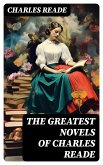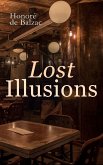In Honoré de Balzac's 'Esther Happy,' the reader is transported to 19th century Paris, where the storyline is rich with social commentary and complex character portraits. Balzac's writing style is characterized by its meticulous attention to detail and psychological depth, making 'Esther Happy' a compelling read for those interested in the Romantic literary movement. The novel explores themes of love, ambition, and societal expectations, painting a vivid portrait of French society during the author's time. Balzac's use of intricate language and vivid imagery adds to the overall immersive experience of the reader. Honoré de Balzac, a prominent figure in French literature, drew inspiration from his own observations of society and human nature to craft 'Esther Happy.' His keen insight into the human psyche and his ability to create multi-layered characters set him apart as a master of realism and a key figure in the development of the modern novel. Balzac's attention to detail and deep understanding of human relationships shine through in 'Esther Happy,' making it a timeless classic that continues to captivate readers today. For lovers of classic literature and those interested in exploring the nuances of 19th-century French society, 'Esther Happy' by Honoré de Balzac comes highly recommended. This captivating novel offers insight into the complexities of human nature and the intricacies of social dynamics, making it a must-read for anyone seeking a deeper understanding of the human experience.
Dieser Download kann aus rechtlichen Gründen nur mit Rechnungsadresse in A, B, BG, CY, CZ, D, DK, EW, FIN, F, GR, H, IRL, I, LT, L, LR, M, NL, PL, P, R, S, SLO, SK ausgeliefert werden.









